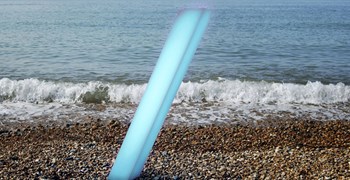Guinness World Record for pendulum clock vindicates John Harrison 250 years on
This article originally appeared on Culture24.
The Royal Observatory scoops the Guinness World Record for ‘most accurate mechanical clock with a pendulum swinging in free air’
 © National Maritime Museum, London
© National Maritime Museum, LondonThe Guinness World Record for the ‘most accurate mechanical clock with a pendulum swinging in free air’ has been awarded to the Burgess ‘B’ Clock, a timepiece made according to the writings of famous clockmaker and father of longitude John Harrison (1693-1776)
Harrison, whose marine chronometer solved the problem of establishing the longitude (east-west position) of a ship at sea, claimed to be able to make clocks that could keep time to within a second in 100 days.
The claim was outlined in a rambling and at times incoherent book which was met with derision and scorn by contemporaries.
 © National Maritime Museum, London
© National Maritime Museum, LondonNow a group known as the Harrison Research Group, led by clockmaker Martin Burgess, has put Harrison’s theories to the test by producing the Burgess Clock B.
Named after its maker, Martin Burgess, the clock took more than three decades of work before it was finished and subsequently adjusted and trialled at the home of Greenwich Mean Time, Royal Observatory Greenwich.
Running since March 2014 in a Perspex case made tamper-proof by the application of wax seals overseen by the Worshipful Company of Clockmakers and the National Physical Laboratory, the official 100-day trial started on January 6 and ended on April 16 2015.
The award was made at the Harrison Decoded conference on April 18 at the Royal Observatory Greenwich, which revealed that not only had the clock’s trial been successful in proving Harrison’s theory, but it had proved itself to be the world's most accurate mechanical clock with a pendulum swinging in free air.
"The results of this experiment are truly remarkable," said Rory McEvoy, the Curator of Horology at the observatory, who called the project "a new chapter in the history of precision timekeeping.”
What do you think? Leave a comment below.
More from Culture24's Science and Nature section:
The magic fairy dust of the game: National Videogame Arcade powers up in Nottingham
Ice Age Britons were cannibals say Natural History Museum scientists
Huge lobster-like animal filtered seawater for food 480 million years ago, say fossil hunters











